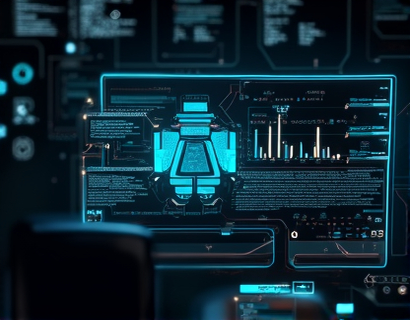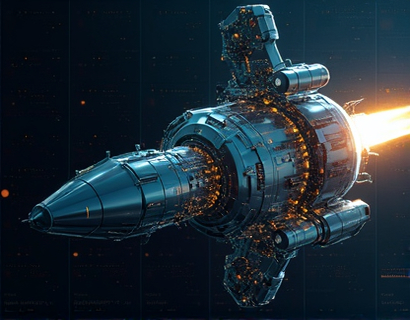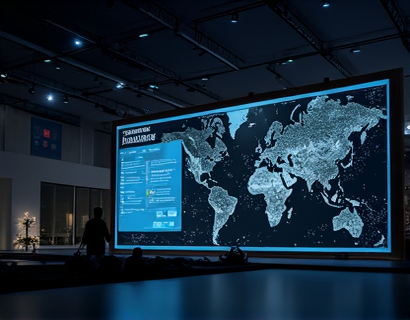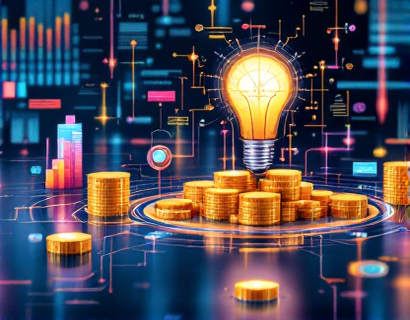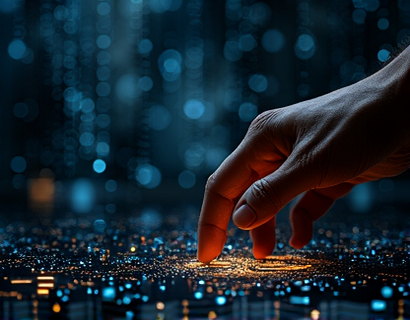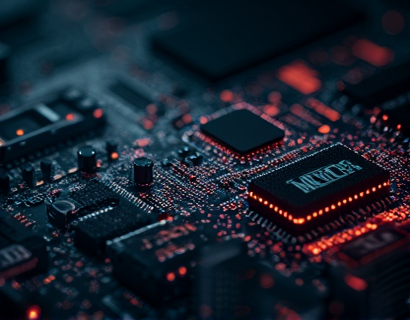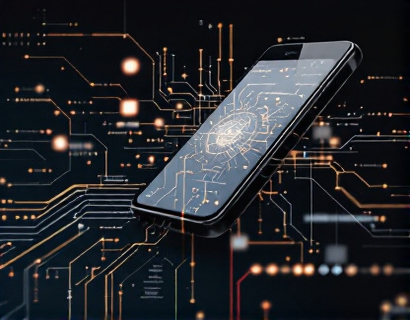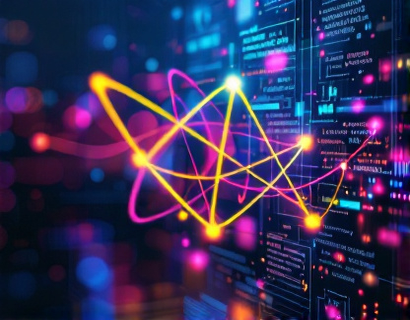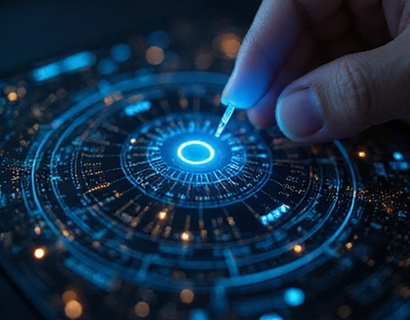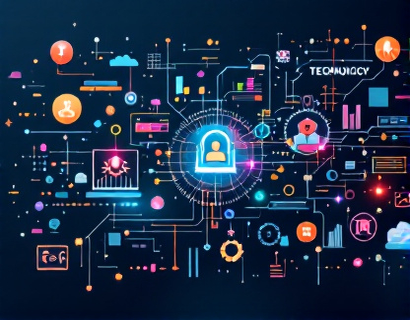Decentralized Transformation: Synergizing AI and Crypto for Next-Gen Digital Solutions
The digital landscape is undergoing a profound transformation, driven by the convergent powers of artificial intelligence (AI) and cryptocurrency. This synergy is giving rise to decentralized applications and services that not only enhance user experience but also foster greater engagement and innovation. At the heart of this revolution is the decentralized ecosystem, which leverages blockchain technology to create transparent, secure, and user-centric platforms. This article delves into the intricate relationship between AI and crypto, exploring how these technologies are merging to redefine digital solutions and ecosystem integration.
The concept of decentralization has been a cornerstone of the crypto movement since its inception. Blockchain technology, the backbone of cryptocurrencies, provides a distributed ledger that ensures transparency and immutability. This foundation is ideal for building decentralized applications (dApps) that operate independently of central authorities. The integration of AI into this framework amplifies the potential of dApps, enabling them to offer intelligent, adaptive, and highly personalized services.
One of the primary advantages of AI in decentralized systems is its ability to process and analyze vast amounts of data efficiently. Traditional centralized systems struggle with scalability and data management, often leading to bottlenecks and security vulnerabilities. Decentralized networks, combined with AI, can handle large datasets across multiple nodes, ensuring robust performance and enhanced security. This capability is crucial for applications in finance, supply chain management, healthcare, and more, where data integrity and real-time insights are paramount.
AI-driven dApps can automate complex tasks, reduce human error, and provide predictive analytics. For instance, in the financial sector, decentralized trading platforms powered by AI can analyze market trends, identify patterns, and execute trades with minimal human intervention. This not only increases efficiency but also opens up new opportunities for algorithmic trading and risk management. Similarly, in healthcare, AI-enhanced dApps can analyze patient data to offer personalized treatment plans, predict disease outbreaks, and optimize resource allocation.
The synergy between AI and crypto extends beyond functional benefits to encompass a new paradigm of ownership and governance. Decentralized autonomous organizations (DAOs) are emerging as a novel form of governance, where decision-making power is distributed among token holders. AI can enhance the functionality of DAOs by providing data-driven insights, automating voting processes, and ensuring compliance with predefined rules. This democratization of decision-making fosters a more inclusive and participatory digital ecosystem.
Another critical aspect of the AI-crypto convergence is the development of smart contracts. These self-executing contracts with the terms directly written into code can significantly reduce transaction costs and increase trust between parties. AI can optimize smart contracts by analyzing historical data to predict outcomes, identify potential risks, and suggest improvements. This synergy ensures that contracts are not only legally binding but also dynamically adaptive to changing conditions.
The user experience in decentralized applications is significantly enhanced through AI-driven personalization. By leveraging machine learning algorithms, dApps can tailor content, recommendations, and services to individual user preferences. This level of customization not only improves user satisfaction but also drives higher engagement and retention. For example, a decentralized social media platform can use AI to curate personalized feeds, filter out spam, and enhance content discovery, creating a more enriching experience for users.
Security is a paramount concern in the digital realm, and the combination of AI and crypto offers robust solutions. Decentralized networks are inherently more secure due to their distributed nature, but AI can further bolster security measures. AI-powered systems can detect and respond to threats in real-time, identifying anomalies and potential breaches before they cause significant damage. This proactive approach to security is essential for building trust and ensuring the long-term viability of decentralized applications.
The integration of AI and crypto also opens new avenues for innovation in the Internet of Things (IoT). Decentralized IoT networks can leverage AI to manage and optimize the vast amounts of data generated by connected devices. This synergy enables smarter homes, cities, and industries, where devices can communicate and make decisions autonomously. For instance, AI-driven smart grids can balance energy distribution based on real-time demand, while AI-enhanced security systems can protect against cyber threats.
Moreover, the decentralized ecosystem fosters a culture of collaboration and open innovation. Developers and innovators can build upon existing blockchain protocols and AI frameworks, creating a rich ecosystem of interoperable solutions. This collaborative environment accelerates the development of new technologies and applications, driving rapid advancements in the field. Platforms like Ethereum and Polkadot are leading the way by providing scalable and secure infrastructure for decentralized applications.
The economic implications of the AI-crypto synergy are profound. Decentralized finance (DeFi) platforms are redefining traditional financial services by offering lending, borrowing, and trading without intermediaries. AI can enhance DeFi by providing sophisticated risk assessment tools, optimizing portfolio management, and automating complex financial operations. This not only democratizes access to financial services but also increases efficiency and reduces costs.
In the realm of supply chain management, the combination of AI and crypto can create transparent and traceable systems. Blockchain ensures that every transaction is recorded and verifiable, while AI can analyze supply chain data to optimize logistics, predict demand, and reduce waste. This synergy is particularly valuable in industries like pharmaceuticals, where traceability and quality control are critical.
The educational sector is another area where AI and crypto can make a significant impact. Decentralized platforms can provide secure and transparent ways to issue and verify digital credentials, ensuring that learners have control over their educational records. AI can personalize learning experiences by adapting content to individual student needs, while blockchain ensures that these personalized resources are securely shared and accessed.
As the integration of AI and crypto continues to evolve, it is essential to address the challenges and considerations of this emerging landscape. Regulatory frameworks must adapt to the decentralized nature of these technologies, ensuring that they operate within legal boundaries while fostering innovation. Additionally, there is a need for standardization and interoperability to enable seamless integration across different platforms and ecosystems.
In conclusion, the synergy between AI and crypto is paving the way for a new generation of digital solutions that are more secure, efficient, and user-centric. Decentralized applications and services powered by this synergy are transforming various industries and redefining the digital experience. As technology continues to advance, the potential for innovation and growth in this space is immense, offering exciting opportunities for tech-savvy innovators and early adopters.













